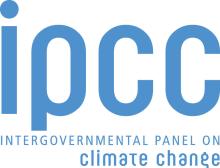Resource information
Land is already under growing human pressure and climate change is adding to these pressures. The Special Report on Climate Change and Land, launched by the Intergovernmental Panel on Climate Change (IPCC) on 8 August 2019, looks into land resources as critical for the climate, and highlights the importance of sound land management for addressing climate change. The report will be a key scientific input into forthcoming climate and environment negotiations.
This report shows that better land management can contribute to tackling climate change, but is not the only solution. Land must remain productive to maintain food security as the population increases and the negative impacts of climate change on vegetation increase. This means there are limits to the contribution of land to addressing climate change, for instance through the cultivation of energy crops and afforestation.
Main points:
- Land is a critical resource
Climate Change and Land finds that the world is best placed to tackle climate change when there is an overall focus on sustainability. “Land plays an important role in the climate system,” said Jim Skea, Co-Chair of IPCC Working Group III. “Agriculture, forestry and other types of land use account for 23% of human greenhouse gas emissions. At the same time natural land processes absorb carbon dioxide equivalent to almost a third of carbon dioxide emissions from fossil fuels and industry,” he said.
The report shows how managing land resources sustainably can help address climate change, said Hans-Otto Pörtner, Co-Chair of IPCC Working Group II. “Land already in use could feed the world in a changing climate and provide biomass for renewable energy, but early, far-reaching action across several areas is required” he said. “Also for the conservation and restoration of ecosystems and biodiversity.”
-
Desertification and land degradation
When land is degraded, it becomes less productive, restricting what can be grown and reducing the soil’s ability to absorb carbon. This exacerbates climate change, while climate change in turn exacerbates land degradation in many different ways.
Roughly 500 million people live in areas that experience desertification. Drylands and areas that experience desertification are also more vulnerable to climate change and extreme events including drought, heatwaves, and dust storms, with an increasing global population providing further pressure.
The report sets out options to tackle land degradation, and prevent or adapt to further climate change. It also examines potential impacts from different levels of global warming.
-
Food security
Coordinated action to address climate change can simultaneously improve land, food security and nutrition, and help to end hunger. The report highlights that climate change is affecting all four pillars of food security: availability (yield and production), access (prices and ability to obtain food), utilization (nutrition and cooking), and stability (disruptions to availability).
The report records that about one third of food produced is lost or wasted. Causes of food loss and waste differ substantially between developed and developing countries, as well as between regions. Reducing this loss and waste would reduce greenhouse gas emissions and improve food security.
An overall focus on sustainability coupled with early action offers the best chances to tackle climate change. This would entail low population growth and reduced inequalities, improved nutrition and lower food waste.
- Land and climate change responses
Policies that are outside the land and energy domains, such as on transport and environment , can also make a critical difference to tackling climate change. Acting early is more cost-effective as it avoids losses.
“There are things we are already doing. We are using technologies and good practices, but they do need to be scaled up and used in other suitable places that they are not being used in now,” said Panmao Zhai, Co-Chair of IPCC Working Group I.
“There is real potential here through more sustainable land use, reducing over-consumption and waste of food, eliminating the clearing and burning of forests, preventing over-harvesting of fuelwood, and reducing greenhouse gas emissions, thus helping to address land related climate change issues,” he said.
About the Report
The report’s full name is Climate Change and Land, an IPCC special report on climate change, desertification, land degradation, sustainable land management, food security, and greenhouse gas fluxes in terrestrial ecosystems. It is one of three special reports that the IPCC is preparing during the current Sixth Assessment Report cycle. The report was prepared under the scientific leadership of all three IPCC Working Groups in cooperation with the Task Force on National Greenhouse Gas Inventories and supported by the Working Group III Technical Support Unit.
(This description was extracted from the IPCC press release)
Access the complete report here.
Download the Summary for Policymakers below.



